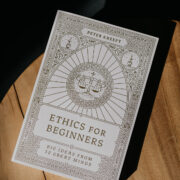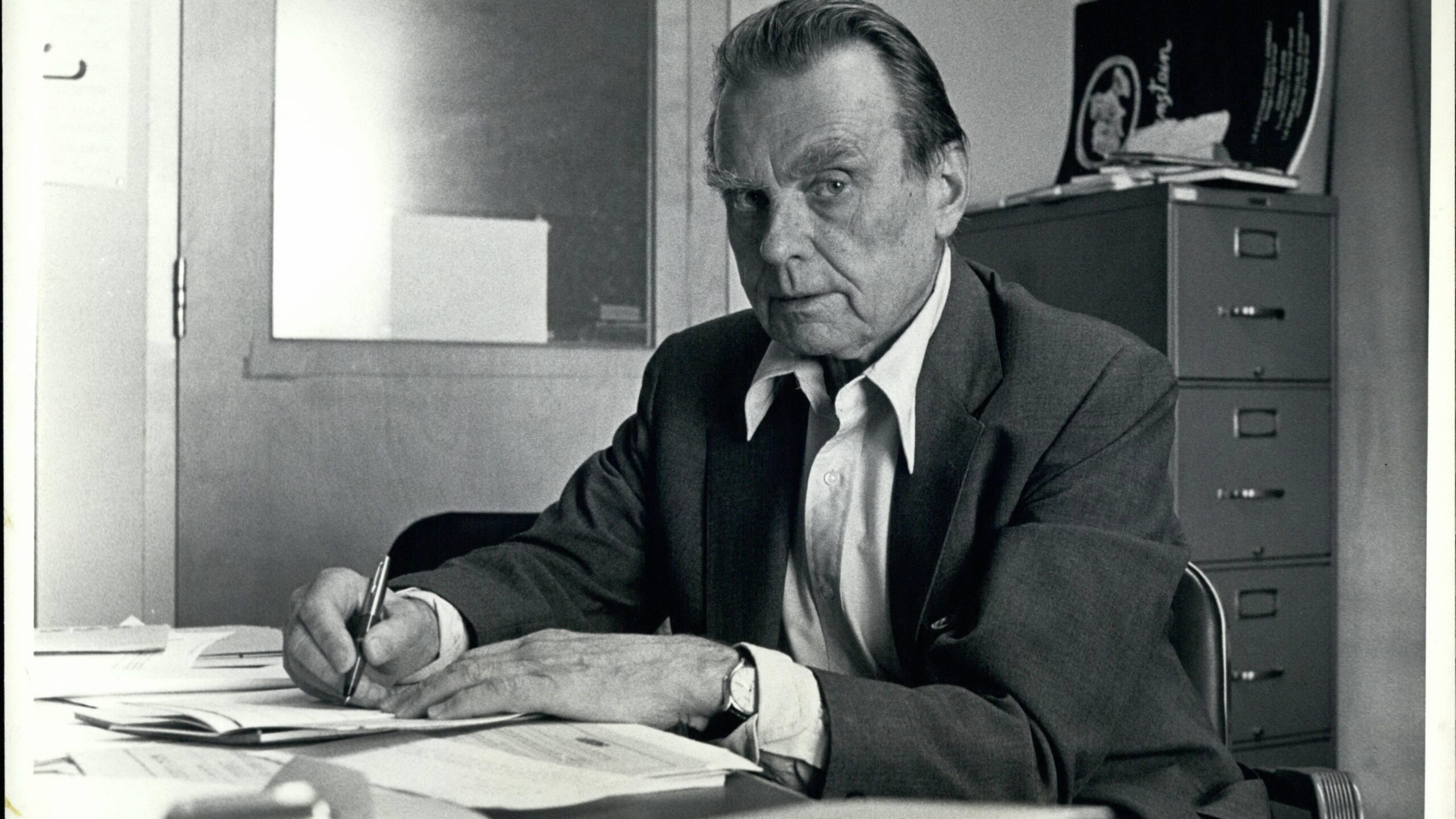At the Catholic Imagination Conference at the University of Dallas, I had the pleasure of briefly talking to Cynthia Haven, author of books on Nobel poets Czesław Miłosz and Joseph Brodsky, as well as a biography of one of Bishop Barron’s favorite thinkers, René Girard. All of these authors interest me, but my main purpose was to ask her about Miłosz and her new book Czesław Miłosz: A California Life.
I’m married to a Pole, and we travel to Poland almost every year. Czesław Miłosz (1911-2004) has proven to be a helpful guide for me in all things Polish. Marrying a Pole is an initiation into the “Polish way.” For this, I rejoice. As you can see, I love Polish culture. And Miłosz is one of the best guides in not only to Polish culture but its love of the particular and concrete (persons, places, things) and its poetic sensibility. Miłosz’s attention to detail is a great antidote to a way of thinking predominant within contemporary education that tends to bypass the particular for the general and abstract. Such attention delights in the world’s varieties of colors without sapping it of life in an uninspiring beige.
Miłosz was a Polish-Lithuanian poet and polymath who spent most of his career in America. While he always remained a Polish-Lithuanian at heart, he nevertheless took on American culture in many ways. Yet America was always alien to him. He was a stranger in a strange land. His reflections on America as a foreigner have helped me better see things in my own culture that usually go unnoticed by natives. This includes aspects of American education and its predominant way of seeing reality.
There is so much to Miłosz. He seemingly read everything. Isaiah Berlin’s famous classification of identifying a thinker as a fox or hedgehog applies here. According to Berlin, “a fox knows many things, but a hedgehog knows one big thing.” Given Miłosz’s various interests, he struck me as a fox. But I wanted to check with Cynthia to make sure that behind the variety, he was not really a hedgehog. I often miss the forest for the trees. I asked Cynthia if she could briefly summarize Miłosz for me in a few words. “What was he about? What did he care about most?” After pausing to collect her thoughts, she looked me straight in the eyes and said, “He wanted to make sure nothing was lost. He wanted to rescue memory from oblivion. Oh, and he had considered his first calling to be a naturalist.”
I wanted students like Miłosz who would embrace divine madness and even be intoxicated by something as simple as “the smell of an orange.”
Cynthia’s description of Miłosz has helped me better see the reason why I’m so fascinated by the man. His interests and insights line up almost perfectly with the thinkers that have influenced my way of thinking about education. For instance, I have been lately reading the writings of Simone Weil for a piece on the cultivation of attention and the love of all creatures great and small. I just finished her essay “Reflections on the Right Use of School Studies.” Her concerns seem to line up perfectly with Miłosz’s, and it turns out Miłosz held Weil in great esteem. His definition of poetry has a touch of Weil in it. He defined true poetry as “the passionate pursuit of the Real.” The same definition applies to true education. For this, we have Miłosz as our guide.
Miłosz was drawn to the goodness and beauty of all things. Such eros and divine madness made him a poet. In her book on Miłosz, Haven writes, “Miłosz, too, embraced a divine madness, but he didn’t need acid to find it; like Whitman, he could be intoxicated by the smell of an orange.” As sensed by the American poets who indulged in acid to discover the spiritual dimension, America’s increasingly technological society has sent the poets into exile. Ecstatic eros of the poets is a threat to such a planned world. The wings of desire for the transcendent have been cut, and we have forgotten that they are even there.
Christians and theists of various stripes might think that the imperative of our times is remembering God (anamnesis). That has always been the case after the fall. But now, in our technological society, added to this is the imperative that C.S. Lewis identified as “the imperative of nature.” Lewis wrote, “The only imperative that nature utters is ‘look, listen, attend.’” I believe Miłosz would wholeheartedly agree. It is the call of eros; the call of the eros within creation linking us to the eros of God.
Upon being named Fellow of Education at the Word on Fire Institute, I have seen it as my mission to take up Stratford Caldecott’s call for the re-enchantment of education through the “way of beauty.” And like Matthew B. Crawford—whose writings are mainly a defense of the mechanical arts but more generally touch upon education, political philosophy, and philosophical anthropology—I have tried to retrieve a sense of education as a leading out to the beauty of a world beyond our heads. Caldecott and Crawford, like Miłosz and Lewis, are Platonic in that eros plays a crucial role in the “leading out” of education.

A great deal in modern education trends is not interested in the beautiful. Even language like “excellence,” “ideal,” or “the cultivation of attention” does not find a place there. This is both mistaken and dangerous. It does not nourish the soul. As a corrective, I have pointed Word on Fire Institute members to the dialogues of Plato. His dialogues address issues in contemporary education, and they’re so much fun to read due to Socrates’ enthusiasm (enthousiazein, inspired by a god). His stress on eros helps our wings grow. Czesław Miłosz’s writings do the same.
At parent-teacher conferences, I was very honest with parents about my hopes for the school year. I would even lay out my philosophy of education. They probably thought I was mad, but I would tell them that I want students to be just as enthused as Socrates. I wanted students like Miłosz who would embrace divine madness and even be intoxicated by something as simple as “the smell of an orange.” Such enthusiasm will awaken the intelligence to gather all things in the present moment through the memory (re-collection), freeing us from oblivion and making the world a home. This is in keeping with what Miłosz sought to do. And I can imagine he would share such a philosophy of education. It is the education of a naturalist who loves the world and its dappled things like a home, like a garden. At least in the garden, students—like Adam—can commune with God through the intoxication offered in “the smell of an orange.”
